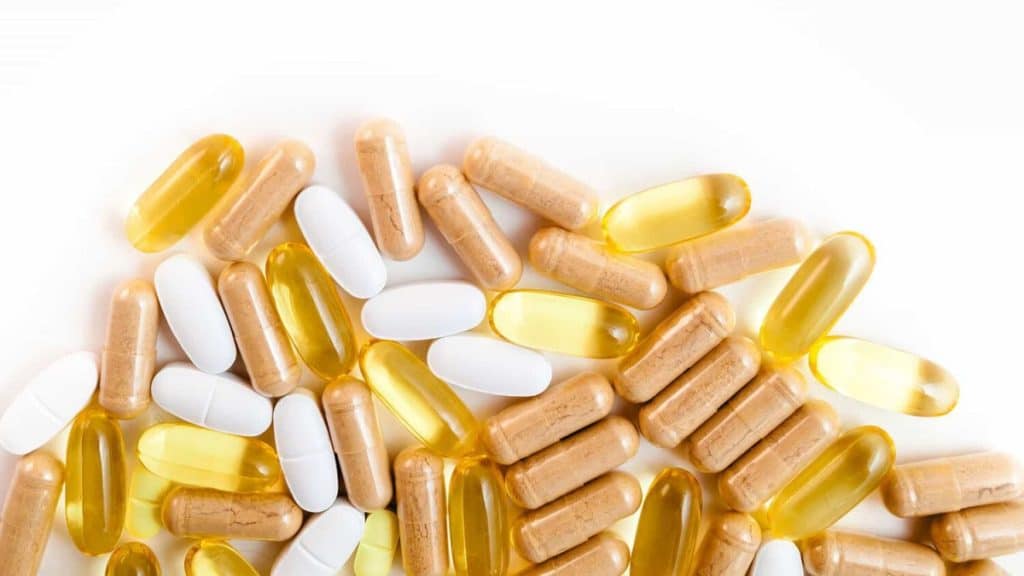As you browse the aisles of your favorite health store or scroll through online options, it’s hard to miss the “organic” labels plastered on supplement bottles. But is there more to these supplements than just the label? How do they differ from synthetic options, and how do you know which one to choose?
In this guide, we’ll talk about the difference between organic and synthetic supplements so you can feel confident in making the right choice for your health.
What Are Organic Supplements?
Organic supplements come from whole food sources like fruits, vegetables, herbs, and animal products, often grown and processed without synthetic fertilizers or pesticides.
Unlike synthetic supplements, which often contain isolated nutrients, organic supplements provide a complex mix of vitamins, minerals, and other beneficial compounds derived directly from whole foods. This means they offer a more comprehensive nutrient profile, closely resembling how nutrients are found in nature.
What Are Synthetic Supplements?
Synthetic supplements, on the other hand, are manufactured in laboratories using chemical processes that create nutrient compounds. These compounds are designed to mimic the molecular structure of nutrients found in nature to deliver similar benefits.
They are also generally more affordable than organic supplements due to the efficiency of laboratory production and the ability to precisely control ingredient ratios. A typical example of synthetic supplements is vitamin C tablets (ascorbic acid). And while natural vitamins might have higher bioavailability, synthetic vitamins can still be a safe and effective option when taken under the guidance of a healthcare professional. A proper prescription ensures the correct dosage and formulation to meet your individual needs.
How to Know If a Supplement is Organic or Synthetic?
Identifying whether a supplement is organic or synthetic can help you choose products aligned with your preferences.
- Check the Ingredients List: Organic supplements often list whole food sources, like “organic kale” or “organic blueberry extract,” as primary ingredients. Synthetic supplements typically list individual nutrient names, such as “ascorbic acid.”
- Ask the Manufacturer: If in doubt, contact the manufacturer or check their website for sourcing and production details. Reputable brands often provide transparency about whether their products are organic or lab-made.
- Review the Packaging: Many brands indicate on their packaging whether a supplement is organic or synthetic. If a product is labeled as “100% Organic” or “made with organic ingredients,” this usually indicates that the product is free from synthetic additives and meets regulatory standards.
The Different Organic Labels and What They Mean
People who prefer organic supplements can check the four labels recognized by the U.S. Department of Agriculture (USDA) to guide their choices. Here’s what each label means:
1. 100% Organic
This label is for products with entirely organic ingredients, except for salt and water, which are considered natural. Typically seen on raw or minimally processed foods, “100 Percent Organic” products can display the USDA organic seal and a “100% organic” claim on the front.
2. Organic
The “Organic” label indicates at least 95% organic ingredients, with up to 5% approved non-organic content. These items may display the USDA organic seal and “organic” claim. Organic components in the ingredient list can be named individually or marked with a symbol to show their organic status.
3. Made with Organic Ingredients
Products with this label contain at least 70% organic ingredients, with strict guidelines for non-organic elements. They can state “made with organic [specific ingredients]” on the front but cannot use the USDA organic seal.
4. Specific Organic Ingredient Listings
For products with less than 70% organic content, “organic” may only appear in the ingredient list for specific certified components (e.g., “organic tomatoes”). These products cannot display the USDA seal or the word “organic” on the front and need only specify organic ingredients within the ingredient list.
Are Organic Supplements Better Than Their Synthetic Counterparts?
Research from the U.S. National Center for Biotechnology Information indicates that the body may more readily absorb vitamins in their natural form. This means that organic supplements contain bioavailable nutrients from real foods that align well with the body’s natural metabolic functions. Unlike synthetic versions, these natural supplements are made from whole food sources.
In addition, organic supplements are generally free from synthetic additives and artificial chemicals. Being composed of natural ingredients, they are less likely to cause adverse effects or interact negatively with medications.
Support Your Well-Being with Organic Supplements
While synthetic supplements provide a cost-effective way to meet basic nutritional needs, organic options take wellness a step further by offering a more holistic approach. Not only do organic supplements, such as those made available on Herbal Pharm, deliver superior nutritional value, but they also allow you to support sustainable and environmentally conscious practices.
But as with any addition to your wellness routine, it’s essential to consult a healthcare professional before incorporating new supplements into your diet. Individual health needs vary, and a professional can help ensure that the organic supplements you prefer will complement your needs and lifestyle.
